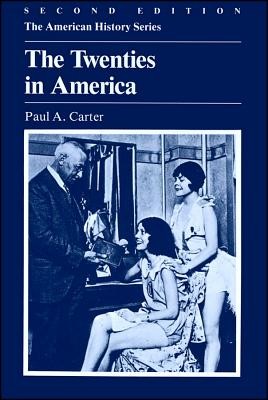
- We will send in 10–14 business days.
- Author: Carter
- Publisher: John Wiley & Sons
- ISBN-10: 0882957171
- ISBN-13: 9780882957173
- Format: 12.7 x 20.3 x 0.8 cm, softcover
- Language: English
- SAVE -10% with code: EXTRA
Reviews
Description
A principal theme of the 1920s was "paradox," and Professor Carter explains the tensions that existed between city and country, progress and nostalgia for the past, progressive attitudes and the persistence of bigotry. Carter also provides incisive reevaluations of some archetypal figures of the era, such as Coolidge, Lindbergh, and Hemingway, and suggests new ways of considering events and developments such as jazz, popular sports, the Scopes trial, and isolationism.
EXTRA 10 % discount with code: EXTRA
The promotion ends in 21d.01:18:58
The discount code is valid when purchasing from 10 €. Discounts do not stack.
- Author: Carter
- Publisher: John Wiley & Sons
- ISBN-10: 0882957171
- ISBN-13: 9780882957173
- Format: 12.7 x 20.3 x 0.8 cm, softcover
- Language: English English
A principal theme of the 1920s was "paradox," and Professor Carter explains the tensions that existed between city and country, progress and nostalgia for the past, progressive attitudes and the persistence of bigotry. Carter also provides incisive reevaluations of some archetypal figures of the era, such as Coolidge, Lindbergh, and Hemingway, and suggests new ways of considering events and developments such as jazz, popular sports, the Scopes trial, and isolationism.


Reviews